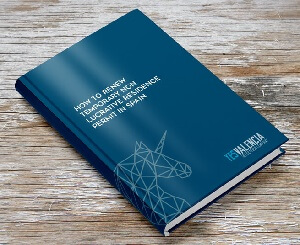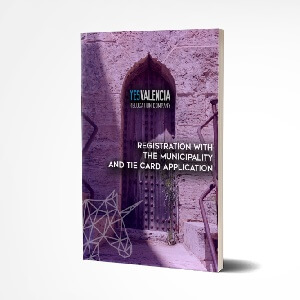
Author: Elina Salvador
Are you expecting a baby? Congratulations! If you are a newcomer in Spain and Valencia, you may have some questions regarding the healthcare. Based on my own experience and that of women I know, I would dare to say that in general they take a good care of you and your baby from day one of your pregnancy, regardless of whether you opt for private or public healthcare. I chose the public side, and was content with everything. I was unlucky to have some complications during my pregnancy, and whenever I needed medical help, they took the situation seriously and were efficient.
During pregnancy
When you discover you are pregnant, the first thing is to contact your local health centre and arrange an appointment with the midwife (la matrona). You will meet her regularly until you give birth, approximately once a month. Besides the routine check-ups – calculating your due date, monitoring your weight, your blood pressure, the baby’s heartbeat, and so on – she will address any concerns you may have. You will get a booklet, in which your midwife notes down information related to your pregnancy. This booklet also has a section for you to fill in during the last months of your pregnancy, where your preferences and wishes related to the labour are assessed. It is important you take this booklet with you to any other check-ups and to the labour.
Your midwife will also refer you to one of the public hospitals for the 12-week and 20-week scans, which monitor your baby’s health and development and can detect anomalies. Naturally, none of this is obligatory, but, needless to say, most mothers use these services to know how their baby is developing. At the hospital, you will be asked to sign a consent for the scans.
At your local health centre, you will get a chance to attend a childbirth preparation class when you are around 6 months pregnant. These are groups that gather normally once a week, and are led by your midwife. It is recommendable to attend, as you receive valuable information on how to prepare your body and mind for giving birth, on labour, and on recovery. You may also make some new friends!
The labour
When your big day comes and the labour starts, either spontaneously or it is induced, you will give birth at one of the public hospitals assigned to you in advance, unless you have chosen a private hospital. If you want to give birth in a different hospital than the one you are referred to, you should arrange it well beforehand by contacting the hospital. Some women have chosen the new “Casa de Partos”, which is part of Hospital de Manises, near Valencia. This is an interesting option for women who desire to give completely natural birth with no drugs such as epidural. If you are interested in seeing the facilities in any hospital before making the decision, contact the hospital well in advance. In any case, remember to take your DNI, sanitary card (SIP) and the booklet given to you by your midwife. In case you are going to a private hospital, don´t forget to bring your private health insurance card. Unless you are told otherwise, you should go to the emergency department (urgencias), and they will look after you from that moment on. If you want to give birth at home, talk to your midwife about this in advance.
When you enter the hospital to give birth, first they will examine you and monitor the contractions. Your partner will not be allowed to enter the examination room but will have to wait in the waiting room. Normally the baby is not coming quite yet, and you will be given a room. In some hospitals you will have a room on your own, in others you might have to share it. Your partner and/or family members can be with you before and after giving birth in this room. Your partner or other close person is allowed to accompany you in labour ward during the whole labour, except the short moment when they give you the epidural, if you ask them to.
After you baby is born, you are likely to stay at least a couple of nights at the hospital in case of a natural birth, and usually 4-5 nights after a caesarean. The medical staff monitors your baby’s health and your recovery, and supports you with starting the breastfeeding, if you so wish. One of the most important tests for your baby is so called “heel test” (prueba de talón), which helps detect some rare but potentially dangerous disorders, and for which you will be asked to sign a consent. In public hospitals, they provide clothes and diapers for your baby, and a nightdress, sanitary napkins and meals for you. Internet is full of “what to pack in your hospital bag” – lists, but basically you will just need personal hygiene products and some clothes with you. Before you leave the hospital for home, they examine you and give you recommendations for recovery.
Back home again
At the same time as you are adapting to the new situation, you will have to do some paperwork. What needs to be done depends on your status and rights, so I will not go into detail here. In a nutshell, your baby has to be registered in the Civil Register between 24 hours and 8 days after the birth. You will need to take a document given to you at the hospital with you, and your family records book (libro de familia), if you have one. In some cases, your baby will get the sanitary card in the hospital, but sometimes you have to go and request it at your local health centre after registering your baby with the municipality (empadronamiento). Depending on the case, you might have to include your new-born as a social security beneficiary. If you work, you will have certain rights, such as fully paid maternity leave (in Spain it is 16 weeks), maternity benefit, extended maternity leave, and so on. In any case, my advice is to get informed well in advance – you do not want to spend days and days going from one office to another right after giving birth. If you can, leave the paperwork for your partner.
Your baby’s first check-up with a paediatrician is within a few days after birth. During the first months of their life, the check-ups are frequent, and become less frequent after 6 months. Your paediatrician informs you on vaccines and everything you need to know. Currently, most vaccines are included in the social security, but not all of them.
You will have to book an appointment with your midwife for a postpartum check-up, usually in about a month after giving birth. Also, in most public health centres, they have breastfeeding support groups, which I encourage you to attend in case you decide to breastfeed your baby. You get practical help from your midwife and meet other mothers.
It is important to have social relationships, and my advice is to get out of home and attend support groups, spend time on playgrounds, etc., especially if you are new in Valencia. Becoming a mother is a huge change, and it is crucial to have support. Remember that you can contact your midwife at any point if you have concerns regarding your well-being. Enjoy your pregnancy and the new, amazing stage in your life!




6 Responses
Are home births permitted?
This was very helpful! Do you have any suggestions on how to find English-language birthing classes? My partner is from Valencia (I am American) and we will be delivering in Valencia, however, my Spanish is still quite weak. Any advise would be helpful!
Hi Gina!
Did you have any luck in finding antenatal classes in English in Valencia?
Will I bepermittedto take a water birth pool with me?
I don’t know Spanish that well. Will I be ok giving birth in public hospital? Will I have the translator or doctors in general speak English?
Hi Paulina! You wont be given a translator. Some doctors speak English, but not all.